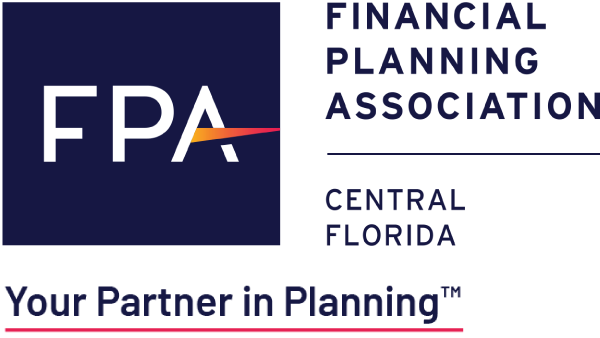
So, you’re shopping for a financial adviser? When it comes time to sit down with a financial professional for an initial meeting, first impressions can go a long way toward determining whether that meeting ultimately will lead to a more lasting adviser-client relationship.
The person sitting across the table from you could be not only your chief financial guide, but also a valuable and trusted sounding board, strategist, troubleshooter, confidant, coach, problem-solver and voice of reason. In filling these important roles, a financial professional can have a profound impact on a person’s life, now and for decades to come. That first meeting can tell you much about the individual and the firm you’re considering hiring, and whether they’re a good match for you, in whatever role(s) you envision them playing on your behalf.
For all that’s at stake, from saving toward near- and long-term goals to managing investments to ensuring your assets are adequately protected with insurance, hiring a financial professional is not a decision to take lightly, says FPA member Dennis Nolte, a CERTIFIED FINANCIAL PLANNER™ (CFP®) professional in Oviedo, FL. “You need to be an educated consumer. This is the person you could be trusting with your hard-earned money.”
To get the most out of that meeting, and a good read on the financial professional and firm you’re considering, be sure to come prepared. What exactly does that entail? Here’s a rundown of the information to consider bringing and the approaches to consider taking during a first meeting with a financial professional, along with a glimpse of what to expect during that meeting, so you can make constructive use of these all-important get-to-know-you moments.
Meet in person. To gauge the caliber of the individual and their firm, the quality of service they provide, and your own comfort level with that person, meet with them face-to-face, at their office.
Bring any financial information you are comfortable sharing and you think would be relevant. Ask the planner for a master list of items you should bring with you as this will help expedite the process. That could include an inventory of your assets (home, investments, retirement accounts, insurance policies, etc.), plus tax returns and other information the financial professional may request in advance. Keep in mind, though, you are under no obligation to provide them with information you are not comfortable sharing at this stage. That can wait until the relationship is formalized.
Be ready to discuss more than finances. “We send our prospective clients what I call a ‘financial Rorschach test,’ which has a multitude of questions that not only ask about numbers but hopes, dreams, experiences, etc. I tell them to complete everything they think I should know, or that which they are comfortable telling me,” explains Nolte.
Bring your own ideas. “This may be ideas of where you are challenged, or ideas of what you hope for in your future,” explains FPA member DeDe Jones, CFP® with Innovative Financial in Lakewood, CO. “Thorough planning is best done with layers of information. These include the basic nuts and bolts of financial data, a layer of knowledge of investing, taxes, financial strategies, etc. But in the end, the plan becomes most valuable when the client brings their personality to the process: their hopes and dreams, if you will.”
Come armed with questions of your own. The adviser should be prepared to answer questions about themselves (background, experience, expertise), their firm/practice (including areas of specialization), their investment/asset management philosophies, how they prefer to work and communicate with clients, and more. Don’t be shy about asking questions, and if you don’t get straightforward, transparent answers, that could be a red flag.
Look for the right fit on a variety of levels. Do you feel comfortable with them personally and seem to get along? “Good chemistry is important,” says Nolte. On a professional level, do their expertise, experience and area(s) of specialization jibe with your needs and priorities? Are they clear about what you can expect from them in terms of service and deliverables, and what they would expect from you as a client? Is the financial professional comfortable in whatever role you envision for them, whether that’s more hands-on or hands-off, whether that entails working as part of a team of advisers, etc.? What technology tools do they offer to clients to access, view and manage accounts?
Ascertain where their interests lie. A fiduciary is required by law to always put client interests above their own interests and those of their firm. Be sure to ask the adviser if they are a fiduciary, or if they hold themselves to a fiduciary standard.
Does he/she ask a lot of questions and come across as a good listener? During a fact-finding, get-to-know-one-another session such as this, it’s the adviser’s responsibility to learn as much as possible about you and your needs. “We believe that the first meeting should be strictly to answer questions, explain process, understand expectations and gain an understanding of what the client is seeking help with,” says FPA member Michael F. Kay, CFP® with Financial Life Focus in Livingston, NJ. “I believe beginning with financial data puts the client in an untenable position of having to share personal info before they have the opportunity to make a decision about working with the planner. No client likes to feel like they are being ‘sized-up’ based on the amount of their portfolio.”
Get clear about how the adviser is compensated. Do they work on commission, on a fee structure or a combination of the two? How are those fees/commissions calculated? How much comes out of your pocket, and what value do you get for your money?
Beware a focus on products over problem-solving. You want an adviser who’s focused on addressing the financial issues that matter most to you, not on selling a product that matters more to them.
Be sure they speak your language. “Look for someone who helps you understand your finances rather than speaking in jargon,” advises FPA member Aaron Clarke, CFP® in Ashburn, VA.
Prepare for engagement. “Once you engage with a financial planner, be prepared to provide a large amount of financial information,” says Clarke. “This is a sign they are taking your full financial life into account when creating your plan.”


